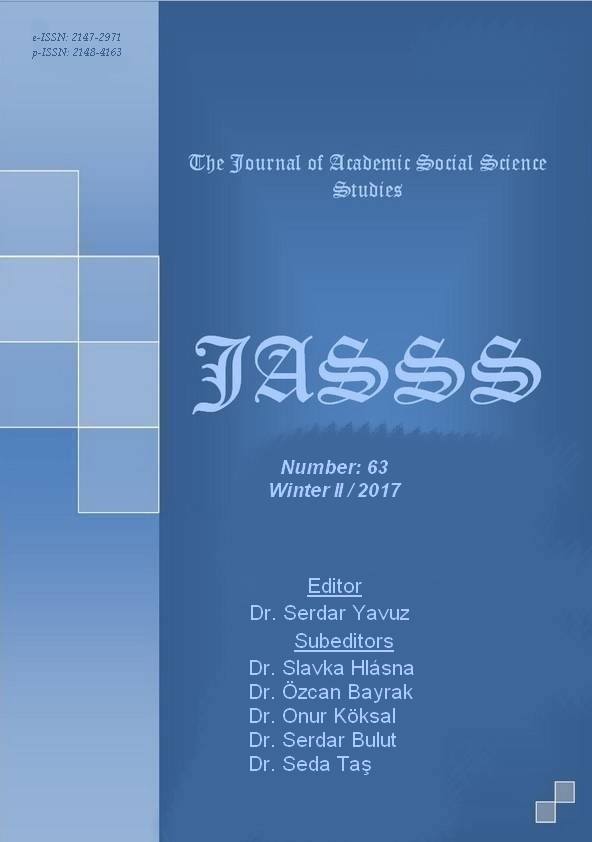Author :
Abstract
Küreselleşme olgusuyla birlikte finansal serbestleşmenin etkileri gerek gelişmiş ülkeler için gerekse gelişmekte olan ülkeler için önemli bir konu haline gelmiştir. Özellikle finansal serbestleşmenin ekonomik büyümeye olan etkisi son yıllarda araştırmacıların ilgi duyduğu bir konu olmuştur. Türkiye ekonomisi, finansal serbestleşmenin yaşandığı 1980 sonrası dönemde önemli değişimler yaşamıştır. Bu değişimlerde finansal serbestleşmeyi sağlamak amacıyla uygulamaya konulan faiz, döviz kuru ve sermaye hareketlerinin serbestleştirilmesine yönelik politikalar etkili olmuştur. Türkiye ekonomisi serbestleşme sürecinde uygulamaya konulan politikalar neticesinde bazı dönemlerde yüksek büyüme oranlarına ulaşırken, bazı dönemlerde sermaye hareketlerinin serbestleşmesine bağlı olarak finansal krizlerle karşı karşıya kalmıştır. Finansal serbestleşme ile ekonomik büyüme arasında anlamlı bir ilişkinin olup olmadığını test etmek ve olası ilişkinin yönünü ortaya koymak amacıyla, Türkiye’de 1998/1. Çeyrek - 2017/1. çeyrek dönemini kapsayan periyotta finansal serbestleşme ile ekonomik büyüme arasındaki ilişki öncelikle VAR (Vektör Otoregresif) modeli ile test edilmeye çalışılmıştır. Ardından, etkili değişkenin, politika aracı olarak kullanılabilirliği, etki-tepki fonksiyonlarıyla, etki derecesi ise varyans ayrıştırmalarıyla belirlenmiştir. Daha sonra, kısa dönemde ekonomik büyüme, finansal serbestleşme ve ticari açıklık tespiti amacıyla Granger Nedensellik Testi uygulanmıştır. Analiz sonucunda, finansal serbestleşmenin bir göstergesi olan sermaye akımlarının ekonomik büyümeyi etkilediğini söylemek mümkündür. Bununla birlikte sermaye akımlarının dış ticaret hacminin nedenlerinden birisi olduğu da ifade edilebilir. Ayrıca çalışmada GSYH ile M2Y'nin dış ticaret hacminin Granger nedeni olduğu tespit edilmiştir.
Keywords
Abstract
With the phenomenon of globalization, the effects of financial liberalization have become an important issue for developing countries as well as developed countries. In particular, the impact of financial liberalization on economic growth has been a topic of interest to researchers in recent years. The Turkish economy has undergone significant changes since the 1980s when financial liberalization took place. In these changes, policies to liberalize the interest, exchange rate and capital movements put into practice in order to provide financial liberalization have been effective. As a result of the policies implemented during the liberalization period, the Turkish economy reached high growth rates in some periods, but it also faced financial crises in other periods due to the liberalization of capital movements. In order to test whether there is a meaningful relationship between financial liberalization and economic growth and to demonstrate the direction of this possible relationship, the relationship between financial liberalization and economic growth over the period 1998/Quarter 1 – 2017/Quarter 1 was initially tested with the VAR (Vector Autoregressive) model. Then, the usability of the effective variable as a policy tool was identified with impulse-response functions, and the impact level was determined by variance decompositions. Then, Granger Causality Test was applied in order to determine economic growth, financial liberalization and commercial openness in the short term. As a result of the analysis, it can be said that capital flows, which are indicators of financial liberalization, affect economic growth. It can be argued, however, that capital flows are one of the causes of foreign trade volume. In addition, it was determined in this study that GDP and M2Y are Granger causes of foreign trade volume.





